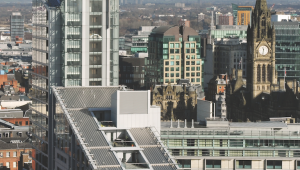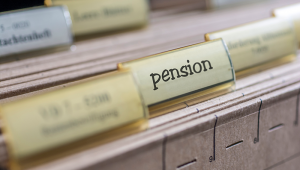The cross-party Commission on Local Tax Reform, established jointly by the Scottish Government and Convention of Scottish Local Authorities set out three possible bases for reform.
These are: a replacement property tax, which would be based on the value of land and buildings; a tax based only on the value of land; and a local income tax raising revenue based on an individual’s taxable income.
The report makes no recommendation for which change should be adopted, but said setting out the potential for reform was “an opportunity not to be missed”.
It stated that the “predominant view of the commission is that any reform of local tax has to continue to include recurrent tax on domestic property, and we recognise that, as with all available options, there are difficulties that must be addressed if any system is to be seen as fair and accepted by the public”.
Two approaches were examined – a reformed, proportionate council tax and a progressive tax on capital values – but a prerequisite for any new system is that it must be more progressive than the current system.
The commission, which was co-chaired by local government minister Marco Biagi and Cosla president David O’Neill and included CIPFA's head of devolved government Don Peebles, agreed that a system of land value tax was promising. However, further analysis was required to fully understand the impact of this switch, it said.
In addition, the “predominant view of the commission is that local government’s tax base should, if it could be proved feasible, be broadened to include income”, the report concluded.
A system of assigning local authorities a share of receipts from the Scottish rate of income tax, to be levied from next year, could provide an interim option, but in the longer-term discussions with HMRC would be needed about the feasibility of applying a locally variable rate of income tax.
A more proportionate property tax, implemented alongside a more progressive system of income and need-based reliefs, would be much fairer than the present council tax, the commission concluded. Public listening events were open to the idea of a hybrid system based on property values and income, the report stated.
Biagi called the report “the most comprehensive quantitative analysis ever undertaken to understand the links between different forms of local taxation”.
He added: “From the outset – having agreed that the present system is unfair and in need of reform – we have worked together in a spirit of consensus to understand the alternatives available to us and to put to the people of Scotland a report that clearly sets out the steps that can be taken to deliver change.
“It is now up to politicians from across the political spectrum, to take today’s report and to use it to put to the Scottish people alternatives that are fair, workable and empowering for local communities.”
O’Neill said there was now a real prospect of lasting and meaningful reform.
“We have conducted more in-depth analysis of potential alternatives to the present system of council tax than ever before, with the aim of promoting understanding and stimulating debate among the public and politicians on the future of local taxation.
"The opportunity to deliver lasting reform is one that must not be missed.”
Peebles said that CIPFA Scotland was pleased that the commission recognises that tax on domestic property should be retained as part of any reformed systems of local taxation
“We welcome the proposal for local authorities to be given wider tax powers including tourist or environmental taxes; alongside a possible income tax rate of 4.5p and a new form of property tax there is now a variety of options to be debated in the run up 2016 elections,” he added.




















